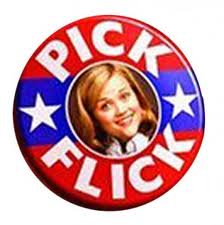Mug’s game
The results of that lesser-known literary prize, the Guardian’s Not The Booker, were announced yesterday. It’s a gong won by popular ballot, which these days is a dirtier business than it sounds. To win, authors solicit votes by any means necessary: Twitter, Facebook, direct email. This year the longlist (very long indeed) contained both male and female writers. After the first round of campaigning, the shortlist was all-male. I really don’t know whether men are more likely than women to campaign bullishly, but there were some cracking novels by women on that original list, which sank once the canvassing began.
With the second round, writer Stephen May* declared he wouldn’t be playing any more: ‘Life’s too short and friendship too rare and fragile a thing to risk by hustling for votes.’ The same couldn’t be said of the eventual winner, whose aggressive electioneering (and questionable use of the first person plural) was outed by prize organiser Sam Jordison.

It seems to me that this graceless hard-sell is of a piece with the other ways in which writers have been known to use social media. On Twitter it is commonplace for authors to tweet, not just the big news, but also the communications they receive from individual readers who are enjoying the book. It’s brilliant to hear from readers, but as for retweeting them…it’s probably not what your followers want to see all day. I’m not entirely sure those readers want to turn unwitting publicist, either.
The nadir of this Twitter-as-billboard tendency came for me one Boxing Day, when I received a direct message (for non-tweeters, that’s a private communication) by an author I’ve never met. He chose Boxing Day morning to ask that I retweet him so his book could rise in the Amazon charts.
Yes, that really happened. I almost regretted unfollowing him after that, because it was starting to become so entertaining.
This stuff isn’t happening because writers are wicked. I’m sure nobody wants to spend their days bullying sales out of people, wedging their feet in virtual doors. Authors do it, I think, because writing – never a profession with the greatest job security – is now more precarious a living than ever. The reasons are many, but they include recession, falling print sales (50 Shades aside) and a crisis in the high street. Very few writers know where their next contract will come from. I’m interested, for example, that half of tonight’s Booker shortlistees were published by visionary independents – after they were turned down by the big publishers.

All of this is true, and for some people it’s sufficient reason to wear out goodwill. I have a sneaking suspicion, however, that this kind of aggressive marketing doesn’t even work. So, readers choose books because their authors are caning it on Twitter? Really? When was the last time you did that? Because nothing puts me off a book more than its author banging on about it relentlessly, and those writers who are most fun to follow, and therefore draw thousands of followers (I give you Jenny Colgan, Philip Ardagh and Marian Keyes) are the very ones who barely mention their day job.
You might feel that bestselling writers are exactly the sort who don’t need to do this stuff, but the most extreme example of desperate marketing tactics is the creation of ‘sock puppet’ identities to praise your own work online – and trash others’. The highest-profile culprit? Award-winning, bestselling author R J Ellory.
I started on Twitter because I thought I ought to, and because of the received wisdom that authors should market their books there. But after a few weeks of using it, I decided that it was a miserable, stressful environment for everyone (including me) if all I did was shout ‘BUY JUBILEE!’ every couple of hours. People follow you because they get something out of it – a book recommendation, or a shared cultural moment, or a link to yet another David Bowie video. They might enjoy tweets about the same topics you cover in your books, but they’ll (quite reasonably) only follow you if there’s something in it for them. Why should they care whether your book sells? Why should they help you increase your follower count? Besides – they’re already following you. If they were going to buy your novel, they’d probably have done so by now.
So for me, Twitter is now something much better than all of that – it’s a virtual water cooler. I catch up on industry news, I meet readers, writers, cupcake bakers, political activists, gin lovers. I sometimes share my own book news, but mostly I don’t.
And Not The Booker? The prize, you will be baffled to hear, is – a mug.
I hope the winner enjoys using it.
*In the interests of full disclosure I should say that Stephen’s a mate.